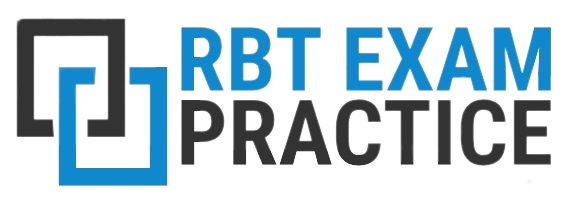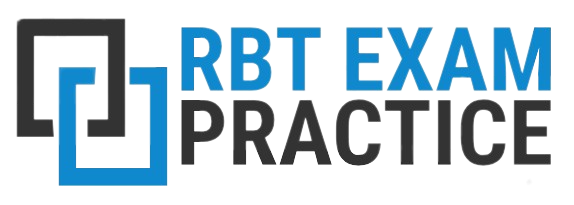Have you spent consistent hours training and learning Applied Behaviour Analysis? Take the next step towards your dream career by taking the RBT (Registered Behaviour Technician) Exam and procuring a registered license.
The RBT (Registered Behavior Technician) exam lasts for about 2 hours and is administered via computer in a supervised setting. Results are generally available within a few weeks. Candidates can retake the exam more than once if they want to!
This exam is the only government-recognized way to enter the ABA field as a Behavior Technician. After taking the RBT Exam, the candidate has standardized proof of their qualifications that is recognized throughout the nation.
Contents
Understanding The RBT Exam
The RBT exam consists of 75 multiple-choice questions covering behavior analytic concepts and principles. It is administered under the supervision of an ABA analyst. The questions are case-based and test the candidate’s ability to make the right decisions under pressure.
RBT Exam Sections
The following main areas of study are covered during the exam:
- Measurement: Mental State Examination, Taking Case History, Measuring Progress throughout the journey, various data collection methods, assigning values to data, etc
- Assessment: Skill Assessment, Coding Data, FBA, Presenting Data in charts and graphs, CRF update, Mastering different Rating Scale
- Skill Acquisition & Behaviour Reduction Learning: Learning techniques like Prompting, Reinforcement, Discrete Trial Training (DTT), Token Economies, Chaining
- Documentation and Reporting: Maintaining accurate reports of each intervention session and emergency episodes. Learning how to communicate the reports with ABA supervisors
- Professional Conduct: Ethical and Legal Regulations, Informed Consent, Breaking Client Confidentiality in extreme cases, etc
- Scope of Practice: Understanding the different real-life implications and capacities of ABA treatment and expanding its boundaries
BACB (Behavior Analyst Certification Board) has provided certain guidelines for the fair conduction of the RBT Exam:
- Ensure exams are proctored
- Maintain consistency in testing and minimize biases
- Fair access to all candidates
- Security measures are in place to safeguard exam content and integrity
- Clear communication of rules and guidelines.
- Providing prompt exam results online.
Study Materials And Resources
Textbooks and Study Guides
You can find RBT Exam Guides from reputed writers on Etsy, Amazon, etc. Similar online resources are available on websites like ABA Source, iPREP Applied Behavior Technician Exam Edu, etc. The Behavior Analyst Certification Board (BACB) itself published an online ‘RBT Handbook,’ which is great for dedicated students.
Practice Tests and Mobile Apps
You will find endless RBT mock exams published by trusted sources online. Mobile apps like the RBT Exam Center have several different study materials. Another great thing you can do is create online or offline flashcards to help remember answers.
Study Groups
You can create small study groups to track your progress and set up routines with accountability partners so that you don’t slack off. This helps if you are motivated by competition.
Study Tips And Strategies
While preparing for your RBT exam, it is important to balance theoretical learning with application and practice. Start on your winning regime by
- Creating a study schedule that meets your habits and producing needs. Make sure you don’t overdo your studies.
- Active vs. passive studying techniques must be balanced together – remember that active studying, visualization techniques, and teaching others help with clearing concepts
- There are many memorization techniques like the use of visual aids, flashcards and mnemonics.
- Give as many product exams as possible and analyze your performance across various domains
Key Topics To Focus On
If you need a checklist to know which topics to study before your RBT exam, here’s all you need to cover!
- Measurement, Assessment, and Data Collection
- Documenting and Reporting Behaviour Changes
- Foundational Behavioral Assessment Procedures
- Skill Acquisition Plans and Techniques
- Behavior Reduction Plan Setting and Implementation
- Professional and Ethical Considerations
Test-Taking Strategies
To give a good exam, we must keep our wits about us. We have to consider many aspects when taking the exam.
Time Management
- Know how much time it takes to solve one kind of question
- Minimize interaction with your supervisor
- Keep a designated amount of buffer time for the difficult question
- Prioritize the important sections of the exam
- Focus only on one question at a time
Handling Questions Analytically
- Focus on the specific terms used
- In case-based questions, mark the demographic and cultural background
- Base your answers on eliminating incorrect options
- Mark and revisit the difficult questions
Maintaining Focus in Anxious Moments
- Practice deep breathing to calm your mind
- Read each question thoroughly
- Focus on one question at a time.
- Use positive thinking to counter anxiety.
- Take short mental breaks if needed.
- Stay hydrated and maintain good concentration.
Common Mistakes To Avoid
We all make some common mistakes that affect our results. Some of these that you can easily avoid include:
- Don’t procrastinate studying till the last moment
- Don’t practice cramming; use active learning technique that lets you understand the bigger picture
- Not giving more time to the challenging topics
- Not solving practice questions and online quizzes
Conclusion
Applied Behaviour Analysis (ABA) employs various theories from psychology, psychiatry, and behavioral sciences in a potentially client-oriented manner. Because of this, behavior technicians must have a clear and contextual understanding. They are the ones working on the frontline, interacting with clients, and implementing treatment techniques regularly.


